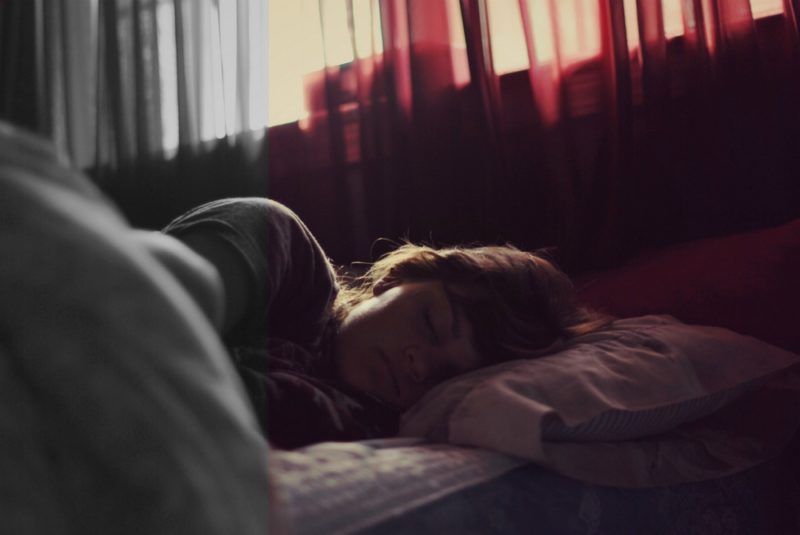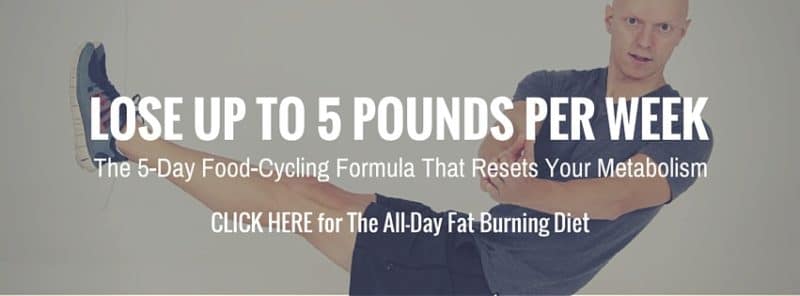Today, I’m tackling a question which I’m sure haunts a lot of you out there. It comes from Jaclyn Merry, who’s asking: “You’re saying to eat carbs at night now. What about protein? I’m a little bit confused.”
In this article
In some of my previous videos, I’ve talked about why eating carbohydrates at night is actually a very smart thing to do, as it’s going to help you lose weight, sleep better, and keep your circadian rhythm in check. Given how popular anti-carb sentiment is these days, I understand how that might be a bit confusing. Let me explain.
Ignore the Typical Advice on Carbs
Traditional fitness and dieting advice says to have carbohydrates in the morning. The thinking behind this is that if you have carbs in the morning, they’re going to fuel your activity throughout the day. It also holds that if you have carbs later on at night—when you’re sitting down and not doing anything—then they’re just going to be stored as fat.
More recently, the world of popular fitness has been overrun by advice that says carbs are the very thing making you fat. As a result, would-be dieters have taken to avoiding carbs like the plague.
Have you heard any of this advice before?
If you’re scared of eating carbohydrates because you think they’re going to make you fat, then I have something to tell you—that’s ridiculous. Sure, if you’re eating pastries, white bread, white pasta—all topped off by copious amounts of sugar—it’s certainly going to increase your risk of gaining weight, insulin resistance, and diabetes, but that doesn’t mean carbohydrates are innately bad.
See, we tend to forget that almost all plant foods are carbohydrates. Fruits and vegetables, for the most part, are carbohydrate-based. Nuts and seeds are higher in protein, but they contain carbs and fats as well. By saying, “I don’t want to have any carbs ever again,” you’re eliminating a very important food group from your life.
The key here is to eat more plant-based foods while removing harmful refined grains from your diet. That means cutting back on (or completely eliminating) breads, pastas, and cereals.
Once you’ve done this, only then can you start to think about the best time to eat carbs.
Timing is Everything
If you have carbohydrates for breakfast, they’re going to blunt your body’s natural cortisol response that is highest in the morning. This is because cortisol breaks down sugar in your body into the blood to stabilize blood sugar. Therefore, if you’re eating a lot of carbs in the morning, you’re giving yourself an influx of blood sugar. This means that cortisol doesn’t have to do its job, and you’ll end up with a lower cortisol response in the morning.
I know what you’re thinking: “cortisol is bad, right?”
The truth is, cortisol isn’t inherently bad. It all depends on how much of it you have in your body—too much is a very bad thing. However, cortisol is an important part of your natural biology and has a natural rhythm throughout the day: highest in the morning, lowest at night. If we do things to offset that, we’re going to start running into problems over time. That’s one of the reasons why eating carbohydrates in the morning is not the best idea.
Furthermore, early morning carb consumption makes you feel sluggish. That’s why my advice is to have more of your carbohydrates later in the day and instead, have more protein in the morning. You can still have your green juices and smoothies, but get some protein in the morning; it’s going to keep you full longer, and keep you mentally sharper. You can still have a steak and salad for dinner if you want—I’m not saying you can’t—but do not be afraid of carbohydrates.
Mind you, this doesn’t mean I’m advocating for you to have a slice of chocolate cake each night before bed. What I am saying is that having carbohydrates later in the day is going to help you sleep better because when you bring carbohydrates in, you’re going to get an increase of insulin. Insulin is also going to move sugar out of the blood and into the cells, as well as a lot of amino acids.
As a result of this, the levels of tryptophan in your blood will increase. Tryptophan will then convert into serotonin, which is a relaxing neurotransmitter. Finally, the serotonin will convert into melatonin, which is the neurotransmitter/hormone that allows your body to fall asleep.
I know this is very technical, but just remember this: eating plant-based carbohydrates later in the day won’t make you fat but will help you sleep.
As a general rule, just eat regular, whole foods. If all of this technical advice confuses you, simply ignore it! I honestly believe that we run into problems when we start stressing. Just live your life.
However, if you do want more detailed guidance on this, pre-order a copy of my new book The All-Day Fat-Burning Diet. It contains all the technical advice you could possibly want on eating a healthy diet, but all compiled in an easy-to-follow eating and workout plan that will help you reach your weight loss goals.



